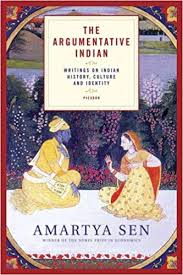Shahab Ahmed began the first chapter of his book ‘What is Islam?’ with these words,
” I am seeking to say the word “Islam” in a manner that expresses the historical and human phenomenon that is Islam in its plenitude and complexity of meaning. In conceptualizing Islam as a human and historical phenomenon, I am precisely not seeking to tell the reader what Islam is as a matter of Divine Command, and thus am not seeking to prescribe how Islam should be followed as the means to existential salvation. Rather, I seek to tell the reader what Islam has actually been as a matter of human fact in history, and thus am suggesting how Islam should be conceptualized as a means to a more meaningful understanding both of Islam in the human experience, and thus of the human experience at large.”
The difference between ‘literal’ Islam (something I had been taught all my life-till that point) and ‘human experience’ of Islam (as theorized by Shahab Ahmed in the lines above) became acutely aware to me in the days and months following ST’s assassination. Where did the theory end and practice start? Does believing in something and doing things contrary to those beliefs hypocrisy or just the way things work? Are the five ‘essentials’ (Tauhid, Namaz, Roza, Hajj, Zakat) of Islam necessary to be performed if you just gain brownie points with God by killing infidels/blasphemers? I was also growing up in an environment of Islamist terror. Militants who professed to be better Muslims than us mere mortals (who performed the aforementioned ‘essentials’) were killing innocent people in Lahore, in Karachi, in Swat, in KP. How does a practicing Muslim reconcile his faith with the Islam professed by the militants? How does an ordinary Pakistani Muslim view the history of Islam? (a pol sci-major friend of mine recently said something very interesting on this topic. According to him, “actual” history doesn’t really matter to people. History in the public imagination is whatever the elites/mil-establishment want it to be )
Following my basic introductions to political theory and rudimentary economics(at IPSS and beyond), I began to think about the intersection of religion and politics. I probed some fundamental concepts regarding political Islam and how accurate they were, like the concept of Muslim Ummah and the statement that ‘Islam is a complete code of life’. While I was pondering over these questions, I was still living in the same social milieu that had existed around me.
I remember debating some 9/11 ‘truthers’ among my medical school classmates. They refused to entertain the notion that it could have been an Al-Qaeda operation, done by fellow Muslims. One day, I got into an argument with a burly, 6 ft 4 in guy in m class about the ‘complete code of life’ theory. I had probably mentioned it on my Facebook wall or in some Facebook group that I didn’t believe in the veracity of this claim because it was a newer (19th/20th century) addition to Islamic teachings. That tall, muscular guy approached me in the lecture hall the next day and said that he didn’t like my comment and that he was offended by it. I tried to reason with him but he got agitated and asked me to shut it because I was questioning religion which made him angry. I switched gears and changed the topic to save my skinny ass. A few days later, I was talking to a classmate who was among the very few friends I had and she said, Please do not get killed for your ideals.
For me, the public reaction to ST’s assassination was an eye-opening experience. There was a notion of a ‘silent majority’ in Pakistan, people who didn’t like mixing religion and politics (this theory was bogus and had no basis in fact). Fasi Zaka, a very intelligent commentator and writer on Pakistani society wrote, “After Salmaan Taseer’s death, Pakistan’s ‘silent majority’ finally spoke up. They liked it.”I heard someone in the ‘liberal’ (secular liberal or group B) circle say that ST’s death closed the door on critical discussion of blasphemy laws in the near future. It was a battle that we (secular-liberals) lost. We were grossly outnumbered and there was a very remote chance that we could incrementally chip at the edifice of blasphemy laws, for example by changing/improving the law of evidence or publicizing the historical consensus among Sunni Ulema that blasphemy is not punishable by death.
Instead, we have Khadim Rizvi and Tehreek-e-Labbaik (TLP), a ragtag group that can publicly mock the most powerful people in Pakistan and get away with it. ST’s death and Qadri’s hanging opened an avenue for these peddlers of hate to come out of their cubbyholes and wreak havoc on the “silent majority”(pun intended). Mohammad Hanif wrote about the aftermath of ST’s murder for The Guardian (full piece here), an excerpt of which is relevant to what I’m saying.
“So who are these people who lionize the cold-blooded murderer? Your regular kids, really. Some Pakistani bloggers have tried to get these fan pages banned for inciting hate. But as soon as one shuts down, another five crop up. Those who have trawled the profiles of these supporters have said that they have MBA degrees, they follow Premier League football, they love the Pirates of the Caribbean films. Miley Cyrus figures on lots of these pages.”
Qadri’s name became a brand (see here and here) that became synonymous with love for the prophet and the whole blasphemy debate. One could argue that in a country that was premised on the idea of a separate homeland for a particular religion, that religion would become the yardstick by which you proved your nationalism and patriotism. As for me, I moved out. It became apparent a few years after the ST murder that things weren’t getting any better in my homeland. I could either suck it up and keep living or leave and start afresh. It was very hard to choose one of the routes but I chose the way out.
What about the few liberal spaces left in Pakistan? They are constantly shrinking. IPSS blew out of steam (and funding), NGO-funded youth groups and ‘Countering Violent Extremism’ (CVE) forums ran out of money after the US decided to decrease its footprint in Af-Pak. I was on an exchange visit (a misnomer, really, since no one ever visited Pakistan in return) to the US in 2012 and everyone at the policy level was talking about a post-2014 withdrawal scenario. There are still some valiant people working on secular ideas in Pakistan. Social media has helped but only a little bit. It has gotten the proverbial 72 seculars in Pakistan together on Facebook but it has also fueled the rise of a neo-Islamist political class that takes part in TLP protests and roadblocks. There are also certain bubbles in which you can dare criticize the state narrative such as LitFests and English newspaper op-eds. I remember talking to a pharmacy student whom I knew from a former workplace at Lahore Literary Festival and asking him what he was doing there since most of the conversation on stage there is in English (by decree or by choice). He replied that he was there just as a spectator to see how the ‘1%’ live in Pakistan and had not understood anything that was being discussed. The most important pockets of secular space consist of indigenous movements and organizations that work with people in their own language. I worked with two such organizations that communicated with people in their languages (Punjabi, Urdu, Sindhi etc).
Social media also helped tremendously in the information warfare raged by Milestablishment, turning former Musharraf-lovers into Pakistan Tehreek-e-Insaaf (PTI) followers. There is a lot of talk about a ‘youth bulge’ in Pakistan but policymakers and commentators rarely talk about the dangers of having a majority of poorly-educated young people who are taught actively and passively that they are victims of some unknown ‘agenda’ and that if they were given the right set of circumstances, they would conquer the world. I used to teach at private medical schools in two different cities of Punjab and I saw the moral and mental confusion that young people had about their lives and their futures. Youth and Naivete go hand in hand, however constant ideological propaganda about Islam’s greatness and Pakistan’s underdog status is a terrible fertilizer for young minds.
ST was not the first victim of this madness. Sabeen Mehmood was killed in cold blood on the streets of Karachi, Raza Rumi was attacked and his driver was killed, Mashal Khan was lynched to death. Each of these individuals tried to talk about secular values in society. What would become of the society? I don’t know. I don’t make predictions. Omar Ali asked me in November 2015 (in Lahore) about my thoughts on Pakistan’s future and I told him that things were doing downhill every passing day. I standby my pessimism.


